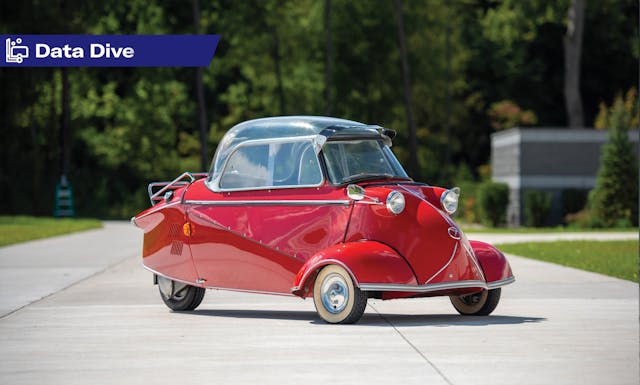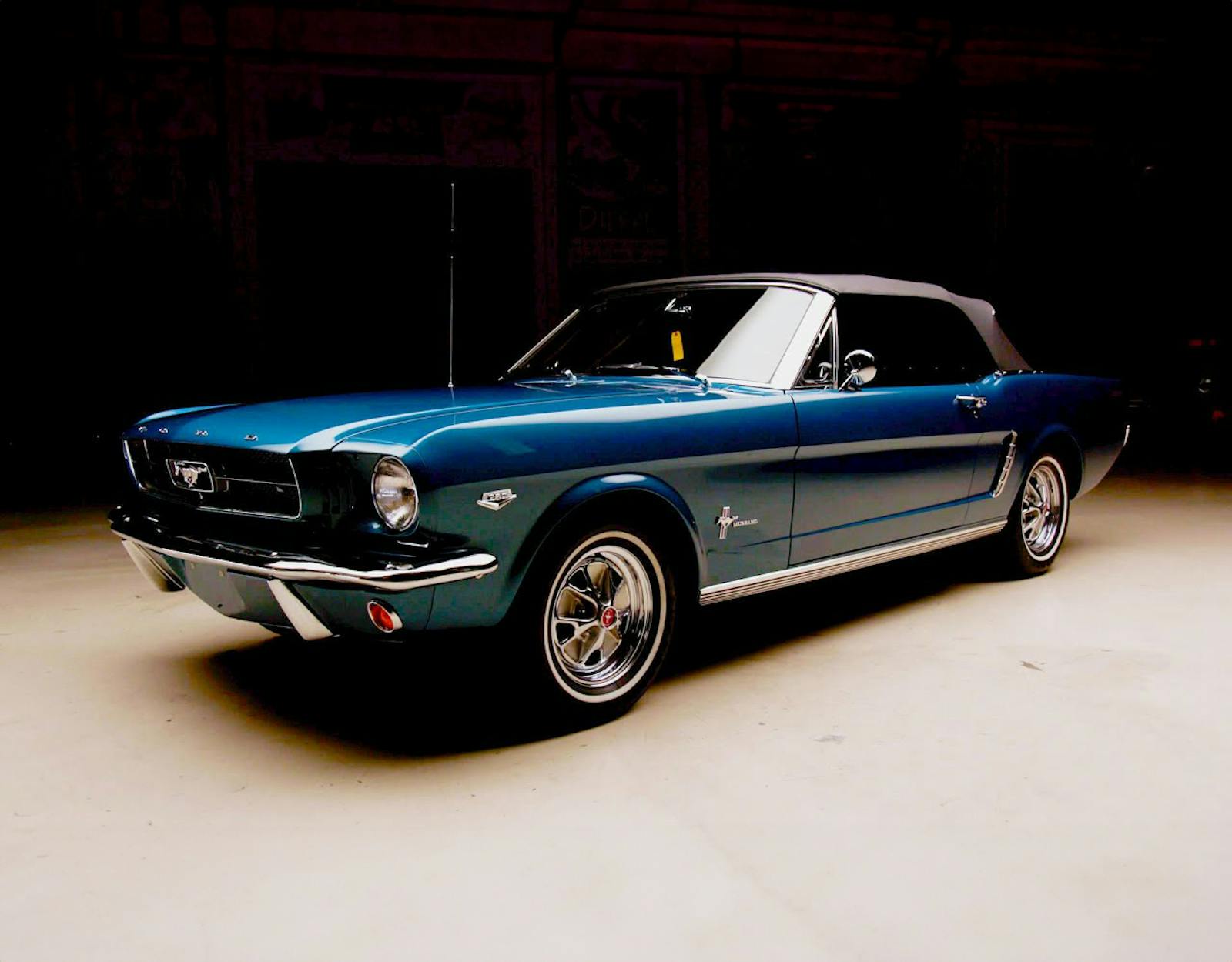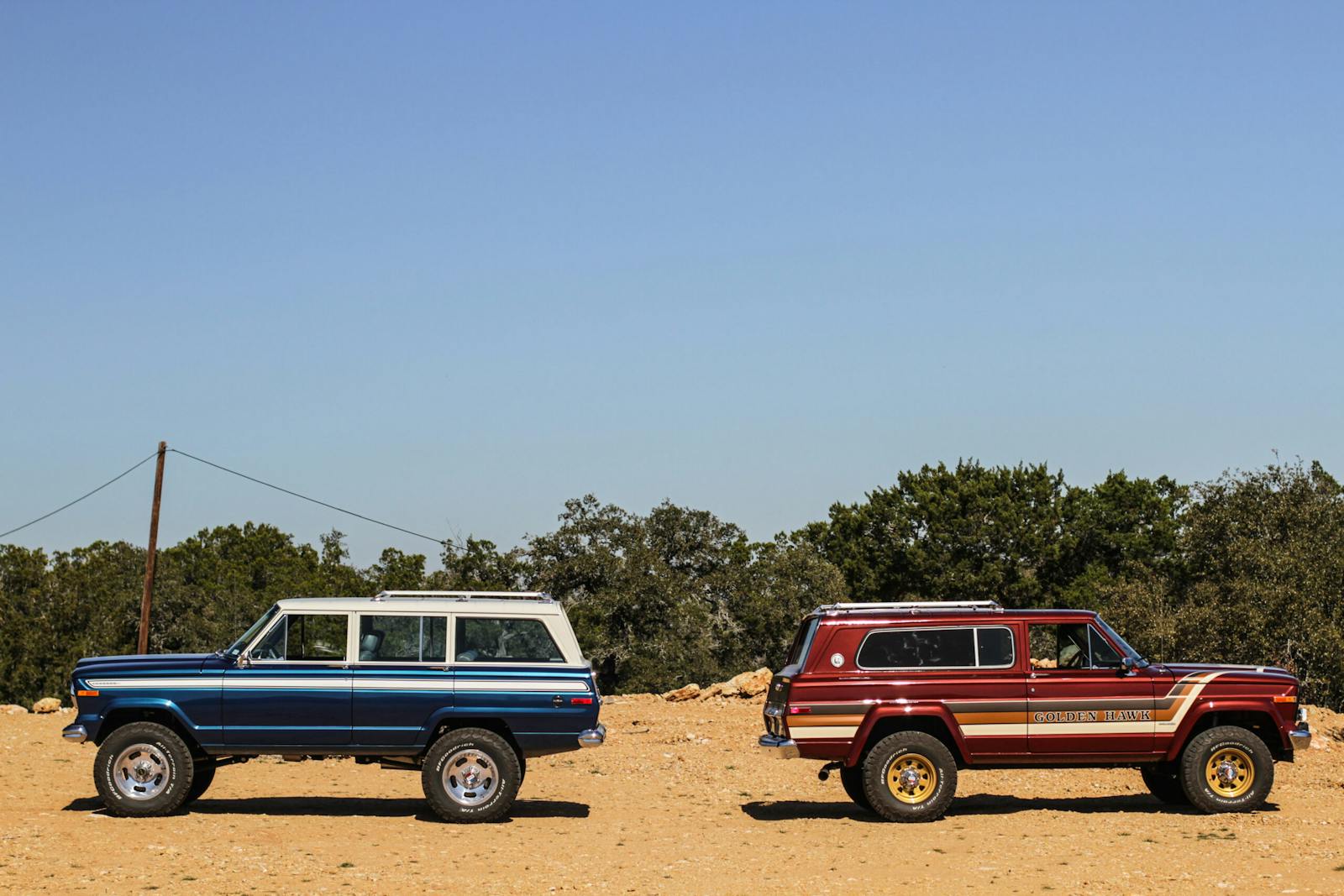Are we in a bubble?
One of the key questions we at Hagerty Insider have been homing in on of late is whether the collector car market is experiencing a bubble. We’ve noted the premiums being paid at certain online auctions, shared the huge gains in recent editions of the Hagerty Price Guide, and pointed out eye-watering prices where we’d never expect to see them. But to determine whether these headlines translate to a bubble requires deeper analysis.
One limitation of the collector car market (or maybe a feature?) is that cars don’t have well-understood fundamental values. We can attempt to determine whether a stock is overvalued by comparing the price to hard-and-fast numbers like the company’s revenues or growth rate. In contrast, a Ferrari 250 GTO is worth more than a McLaren F1 based largely on subjective and hard-to-quantify attributes, such as pedigree, rarity, and usability. To be perfectly clear, we are not saying a vehicle lacks inherent value. Quite the opposite: We think something you can see, touch, smell, and—most important—drive will likely retain its worth better than a stock picked based on a quarterly report. Yet the squishiness of what makes a vehicle special means it is hard to gauge when it is appreciating too quickly. It was pretty easy for stock market experts to declare that GameStop stock was over-performing, based on the beleaguered retailer’s sales, but who’s to say a Dodge Viper shouldn’t be growing in value faster than, say, a Chevrolet Corvette ZR-1?
That said, we do have ways to determine if values are rising faster than we expect. One, which we’ll focus on here, is the rate of record prices.
In any given year, a certain percentage of vehicles sold at auction achieve record prices—perhaps more than you’d expect. For instance, even in 2019, which pretty much everyone agrees was a terrible, no-good year for collector car values, nearly a third of the vehicles that sold at auction set new records for their year, make, and model. This reflects both the general and near constant rise in prices of everything (inflation) as well as the fact that enthusiasts are almost always chasing—and subsequently driving up values for—something.
When the percentage of record prices itself approaches a record, however, then we begin to suspect things are superheated. Such was the case for 2014 to 2015, the last period in the market that we’d generally recognize as a bubble—or at least a peak. In both those years, 41 percent of vehicles that sold at auction set a record.
The percentage of records we’ve seen so far in 2021 stands at—wait for it—41 percent. Yes, the same level we saw in 2014–2015. By this measure, we are indeed in a hot market.
Of course, it’s worth remembering that although the market peaked in 2014-15, most collectors experienced the years that followed as a gradual plateau. Only a few vehicles dropped dramatically enough that we can—in retrospect—say the peak was in fact a bubble.
We can zoom in on particular kinds of vehicles setting records to help determine where we’re looking at just normal market undulations and where we might be seeing something more. During the 2014–15 period, cars from Italy stood out, with nearly 70 percent of auctions of vehicles from that country setting records. It is thus no surprise that Ferraris, for which 67 percent of auction sales set records in 2014, experienced corrections in the years that followed. The same can be said of Porsche 911s—66 percent of its auction sales set records in 2014, a number that had tumbled to just 13 percent by 2019.
In 2021, cars from Italy have remained relatively calm, setting records only 30 percent of the time. The notable mover is Japan. More than half of the Japanese cars that have sold at auction in 2021 have set a new record.
The era from which we’re seeing lots of records fall should likewise come as no surprise. In 2014, the heat was focused on vehicles from the 1950s and 1960s. Today, it’s vehicles from the 1990s: They set records in 40 percent of auctions so far in 2021.
So, the answer to our original question—are we in a bubble?—largely depends on what you collect. For those who focus primarily on older European cars, the answer is, probably not, even if you’re seeing appreciation. If you’re filling your garage with 1990s Japanese metal, the answer quite possibly is yes.
It’s worth noting that the newest collector cars are, if anything, where we should see a lot of volatility. When new participants enter a market, price discovery takes time. That’s doubly true when you add new means of participating in and observing a market. With the incredible audiences that are now aware of auction prices, both online and from live auctions, it seems that higher prices get more and more attention these days. More attention brings higher prices brings more attention and so on.
Until, some day—inevitably—it doesn’t. Bubbles burst.
If we sound rather blasé about stating that fact, it’s only because of how little impact it will have on the typical collector and the market as a whole. If collector cars ran purely on dollars, like stocks, then right about now we’d be worried about speculators filling warehouses with late-model Japanese cars—probably on credit—and tanking the market the minute prices begin to slip. Surely, some buy collector cars in hope of a quick windfall; most, thankfully, do not. That is why the market has easily recovered from past bubbles, and why people continue to buy, sell, and enjoy vehicles no matter their dollar value. That’s more than a moral victory—it’s the reason the collector car market, by and large, is bubble-proof.
How much longer will this bubble expand and how big will it burst are elusive questions to answer. So in the meantime it is doubly important to perform your due diligence, research changing values, and really understand both the car you intend to purchase and the prevailing market conditions for it. If you’re buying for enjoyment, you’ll be set up for success. And if you’re buying for investment, you’ll be doing so with eyes wide open.


